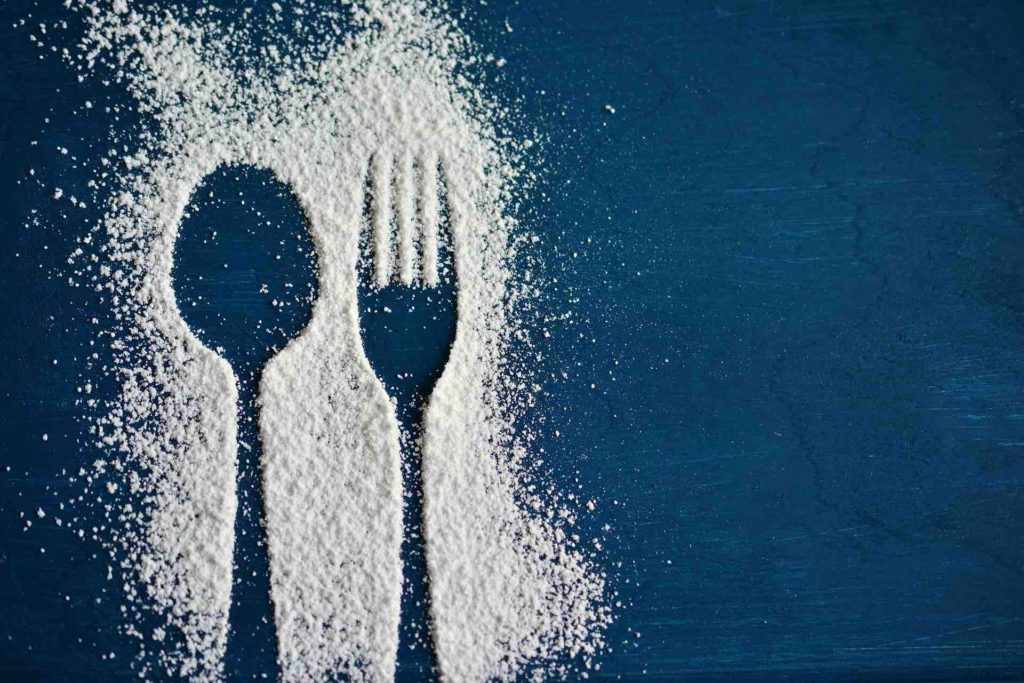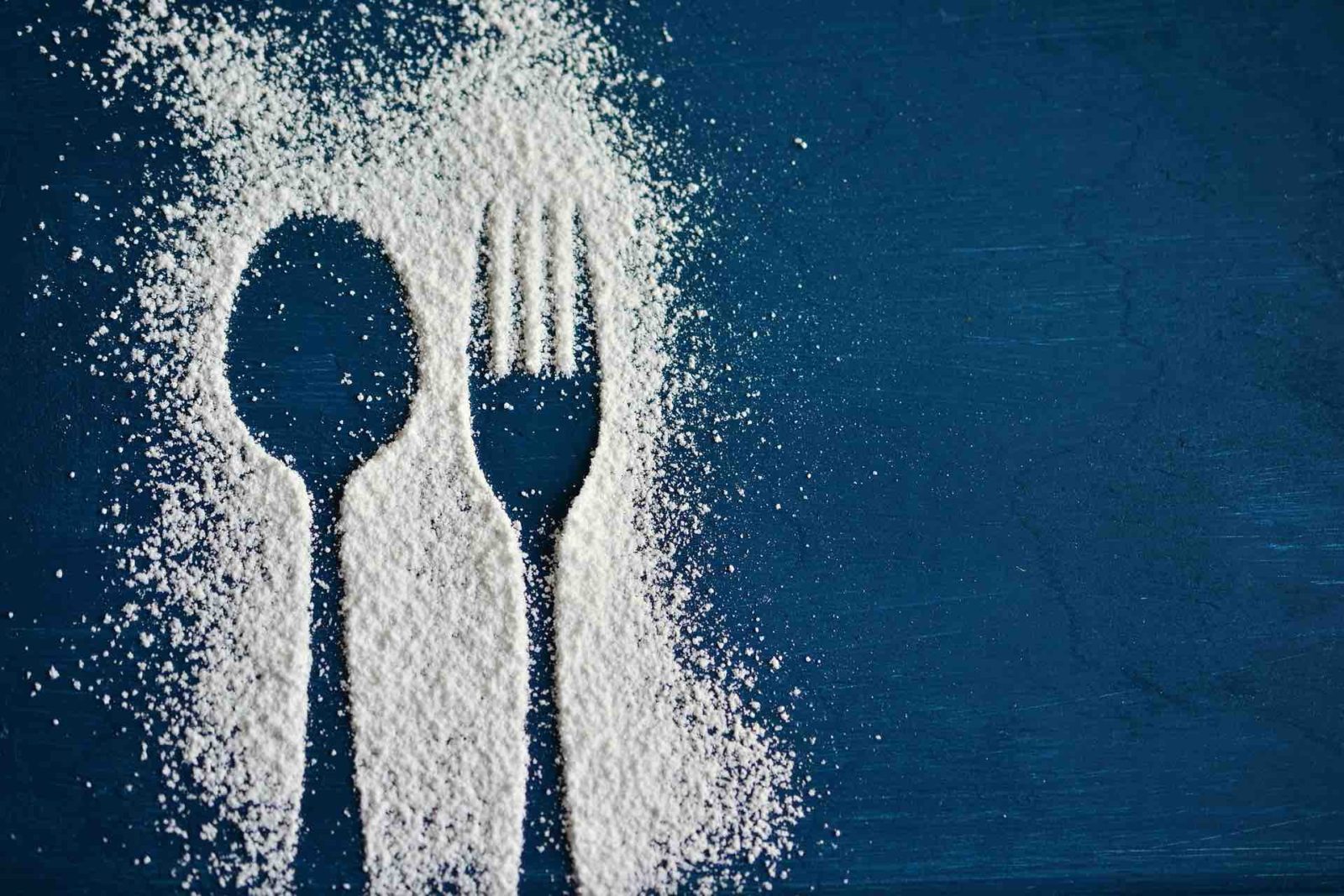As an Amazon Associate, I earn from qualifying purchases.

When a health coaching client excitedly tells me about healthy food substitutes they’ve found—such as no-sugar, high-protein cookies with erythritol, chicory root fiber, and pea protein—I’m skeptical, but I encourage them that they’re heading in the right direction while sharing my concerns. Though swapping out junk food such as sugar for whole foods like dried dates can upgrade one’s diet, processed food inventions are usually best used as transitional tools, like training wheels on a bike.
Substituting Whole Grains for Refined
In my book, Nature’s Palette https://amzn.to/3hKH1Fo, I suggest substituting whole grain bread for refined white bread because refined grain has been stripped of most of its nutrients, including fiber and vitamins. In truth, whole grain flour substitution is a transition strategy to eat healthier—whole grains that have been processed into flour raise blood sugar significantly more than whole grains in their original, intact form, such as wheat berries. Yes, whole grain flour is more nutritious than refined grain flour, but the glycemic index of both flours is practically the same.
Replacing Trans Fats with Monoglycerides
Recently, I was craving panettone, the Italian Christmas sweet bread studded with dried fruit. Though I love baked goods, I don’t eat them regularly anymore—so when I indulge in refined carbs, it has to be worthwhile. I consider a small amount of flour (doesn’t matter if it’s whole grain) and sugar as my poison and avoid additives to prevent toxin overload.
The panettone that is widely available and affordable usually contains mono- and diglycerides, and sometimes, natural flavors and preservatives. Are monoglycerides and diglycerides bad for you? You may have heard that trans fats are toxic—worse than sugar and saturated fat. Margarine made from partially hydrogenated oils, a major source of trans fats, is more harmful than butter. The FDA finally banned partially hydrogenated oils in 2018, but FDA labeling regulations allow companies to misleadingly round down to “0 trans fat” on the nutrition label if there is less than 0.5 g of trans fat per serving.
0.5 g may not sound like much, but the World Health Organization (WHO) recommends that trans fat intake be limited to less than 1% of total calories, which translates to less than 2 g/day on a standard 2,000-calorie diet. Adults could easily go over the trans fat limit by tearing into a package of “0 trans fat” cookies with 0.49 g of trans fat per serving of 4 small cookies. Small children, needing only 1,000 calories per day, could easily exceed the trans fat limit by eating 2 small cookies.
Savvy manufacturers have switched to using mono- and diglycerides in about 70% of emulsifiers in processed foods, especially baked goods and ice cream. However, mono- and diglycerides can also contain trans fat, and this doesn’t need to be disclosed on the nutrition label.
Different Name, Equally Toxic
Similarly, the public caught on to the hazards of Bisphenol A (BPA), an endocrine disrupting chemical widely used to make plastic food storage containers and water bottles. As a result, many businesses started touting BPA-free products, yet some of these substitutes for BPA may be as toxic as BPA.
Glyphosate is the world’s biggest selling herbicide. The controversial chemical has already been banned in several countries and in 2020, Bayer agreed to pay nearly $11 billion to settle approximately 125,000 lawsuits that its glyphosate formulation, Roundup, causes cancer. It wouldn’t be surprising if a replacement for glyphosate turns out to be just as noxious.
Junk Food Masquerading as Healthy Food Substitutes

Diabetics and dieters commonly exchange one refined powder for another—sucralose, stevia, monk fruit, etc. instead of sugar. Ironically, sugar substitutes can increase the risk of diabetes, obesity, and other diseases by altering the gut microbiome. In addition, merely tasting sweet flavors may prompt insulin release, leading to metabolic conditions such as diabetes.
Likewise, “French fry vegans” live on meatless processed foods—French fries, fake chicken nuggets, peanut butter and caramel plant-based ice cream—that offer no nourishment and may contain toxic additives. At the end of the day, it doesn’t matter if candy like gummy bears is vegan, organic, low-carb, and gluten-free. Vegan processed food is still junk food.
Swapping Deep Fryers for Air Fryers
It’s okay to enjoy gummy bears occasionally if you make healthy choices about 80% of the time. Unfortunately, many people want to indulge 80% of the time and look for hacks and food swaps to feel better about it. No wonder air fryers have become so popular—fried food every day without the health consequences!
Without a doubt, decreasing the consumption of processed seed oils, especially oxidized and reused oils, is wise. However, high temperature or prolonged cooking, even without using oil, destroys nutrients. Also, there are air fryer health risks: starchy vegetables and grains cooked at high temperatures (particularly dry heat like an air fryer, grill, or oven) can form acrylamides which can cause cancer. Meat cooked at high temperature dry heat can create carcinogenic compounds as well, including heterocyclic amines (HCAs). In both cases, minimizing browning and charring can reduce the risk of cancer.
Is It Ok to Eat Dessert Every Day?
In populations where fried foods and sweets are special occasion dishes and industrial foods seldom eaten, diseases such as diabetes and metabolic syndrome are less common. Despite our technological advances, humans haven’t evolved to consume dessert every day. Nor can our bodies function well when overloaded with processed food that lack nutrients and can include toxins.
So choose quality over quantity and ditch the unsatisfying, processed food, including the ones disguised as healthy substitutes. We need nourishment from whole foods. Avoid burdening your body with dessert every day. Instead, allow yourself a treat once in a while by savoring something decadent made from real ingredients.
To learn more about whole foods, see my post, Eat Like a Human, Not a Machine.

